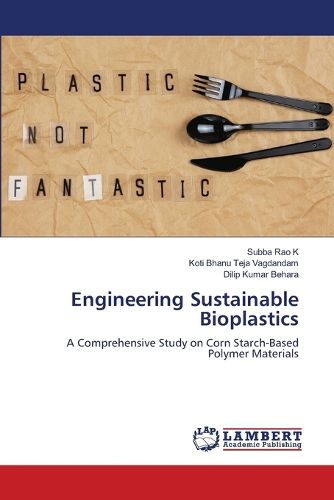Readings Newsletter
Become a Readings Member to make your shopping experience even easier.
Sign in or sign up for free!
You’re not far away from qualifying for FREE standard shipping within Australia
You’ve qualified for FREE standard shipping within Australia
The cart is loading…






This study explores the development and characterization of corn starch-based bioplastics as an eco-friendly alternative to synthetic plastics. Using corn starch, glycerol, vinegar (5% acetic acid), and water, various compositions were tested to evaluate moisture content, tensile strength, solubility, biodegradability, and flammability. The results indicated that glycerol and vinegar content significantly influenced mechanical properties, with an optimal glycerol range of 8%-13% and vinegar range of 7%-14%. The biodegradability test showed 60% degradation in six days, and the flammability test revealed 90% combustion. The study concludes that the best-performing samples are suitable for packaging applications, offering a sustainable solution to plastic pollution.
$9.00 standard shipping within Australia
FREE standard shipping within Australia for orders over $100.00
Express & International shipping calculated at checkout
This study explores the development and characterization of corn starch-based bioplastics as an eco-friendly alternative to synthetic plastics. Using corn starch, glycerol, vinegar (5% acetic acid), and water, various compositions were tested to evaluate moisture content, tensile strength, solubility, biodegradability, and flammability. The results indicated that glycerol and vinegar content significantly influenced mechanical properties, with an optimal glycerol range of 8%-13% and vinegar range of 7%-14%. The biodegradability test showed 60% degradation in six days, and the flammability test revealed 90% combustion. The study concludes that the best-performing samples are suitable for packaging applications, offering a sustainable solution to plastic pollution.